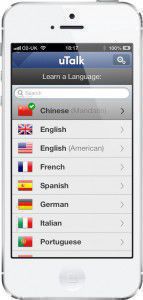How to learn a language on a budget
Why do people give up on learning a language?
There are many answers to this question, of course. Recently, we’ve been running a survey (which you can still complete, if you have two minutes), about language learning, reasons for learning and things that might get in the way. According to the results so far, two of the top answers given to the above question are: lack of time, and lack of money.
 As I know only too well, language classes, private tutors and language CDs or books can quickly become very expensive. Having recently decided to try and upgrade my schoolgirl French, I had a look round at languge tuition and was pretty depressed to see that I would struggle to afford even a few weeks of classes. But never fear, there are plenty of ways to learn even if you can’t afford to go back to school or buy expensive subscriptions.
As I know only too well, language classes, private tutors and language CDs or books can quickly become very expensive. Having recently decided to try and upgrade my schoolgirl French, I had a look round at languge tuition and was pretty depressed to see that I would struggle to afford even a few weeks of classes. But never fear, there are plenty of ways to learn even if you can’t afford to go back to school or buy expensive subscriptions.
So here’s my short guide to how you can learn a language on a budget. Happy learning!
1. Online
There are a tonne of great resources to be found online without even paying a penny. Depending on your language, there are loads of websites for learning grammar, vocab and more. And you can often find really good sites for more advanced learners – I really love RFI for practising French (they have news reports in ‘easy’ French, with text transcriptions). For beginner to intermediate learners, busuu.com has a great programme for 12 languages, including grammar, reading, writing and vocab, and even allows you to chat with native speakers.
2. Media
This probably only applies to intermediate to advanced learners, but it’s my favourite way to practise the languages I already speak. Try watching movies in your language, with English subtitles, or subtitles in the language. Or Google the online version of a newspaper in that language (if I’m feeling very motivated, I read lemonde.fr, spiegel.de or elmundo.es). The radio is also a great tool for language absorption. You can listen to radio in almost any language at tunein.com (and they have a great app for on-the-go listening). Even just listening to some music in another language gets you used to the sound.
3. Flashcards
I used to be obsessed with these when I was at school and uni. In my opinion, this is a great way to cram vocabulary. Either make your own with paper (write the foreign word on one side and the English word or a picture on the other) and test yourself or get a friend to test you. Or, even better, there are some free programs to do just that, which even remember which words you’re weaker on and bring them up more often until you get them right. I used to use this on the computer, but you can get flashcards in app form now too.
4. Find other people to speak to
Ok, I’ve got it easy here because we have a very international office and I’m never short of someone to annoy with my dodgy Spanish… But even if you’re not surrounded by native speakers, you might be able to track down a language partner using a website like totalingua.com that matches you up with an exchange partner. If no one lives in your area, you can always arrange a Skype chat instead of meeting face to face.
5. Apps
There are some amazing free or cheap apps to download on iPhone or Android. I’m using a combination of DuoLingo and uTalk to learn basic Italian. DuoLingo is free and gives you a good grounding in grammar and basic vocab, whilst uTalk features native speakers for all (70 and counting) languages, and has real audio for all the phrases and vocabulary, so I can pick up on the accent and pronounciation as well. I normally play a couple of the games on the bus to work, although I save the recording quizzes for the privacy of my room!
6. Books
If you’re more of a paper and pencil type, then there are plenty of language-learning books on the market, and they’re mostly cheap to buy, or you can track some down second hand. I think there’s something to be said for having a paper dictionary if you’re a serious language learner (what if leo.de is down!?) – even if you just decorate your shelves with them to look intellectual (or is that just me?).
Have you got any more tips for people learning a language on a budget?
Alex
Next week: our guide to learning a language when you’re short of time. If you’ve got any particularly useful tips you’d like to see included, please let us know below!

